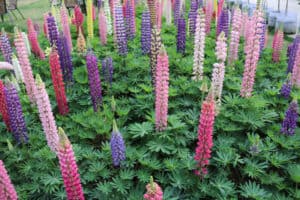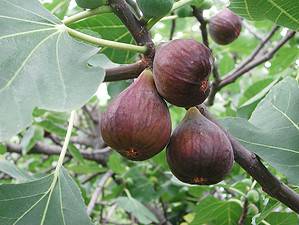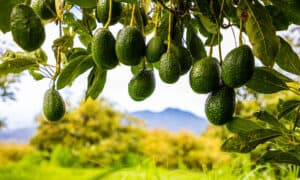Zucchini are some of the most popular vegetables out there, used in everything from bread to stir fry. These vegetables are undoubtedly versatile. Growing your own zucchini can be rewarding, and nothing tastes as good as homegrown produce!
One way to ensure zucchini thrives in your garden is to plant it alongside companion plants. You’re not alone if you wonder which plants to companion with your zucchini. Choosing the proper plant companions can enhance your zucchini plants’ growth, health, pollination, and productivity while offering a range of benefits, such as pest control. In this article, we will explore some of the best zucchini companion plants for your garden.
1. Dill (Anethum graveolens)
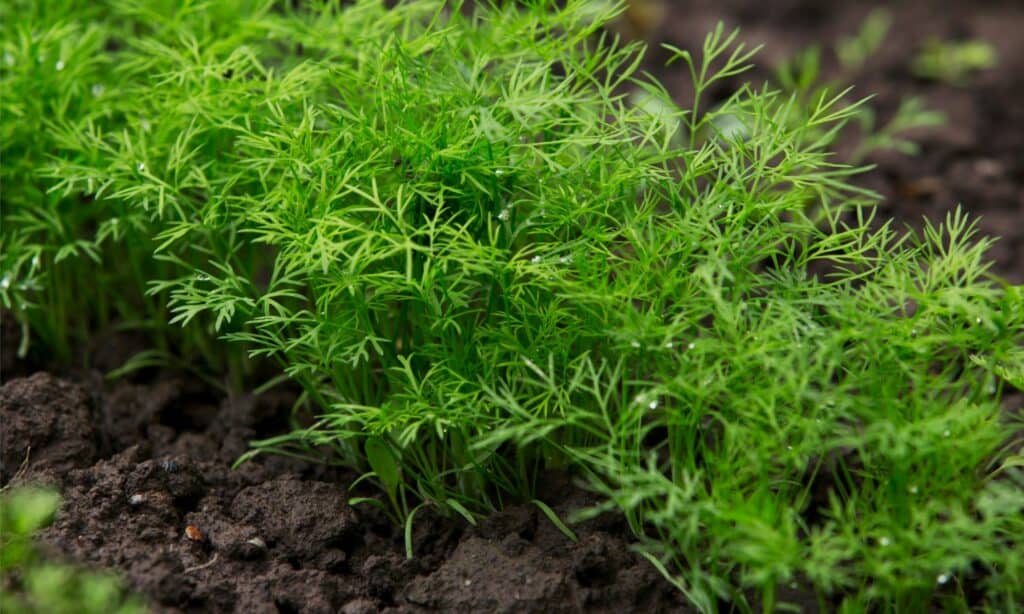
A delicious herb in both smell and taste, dill is a wonderful addition to any garden!
©iStock.com/DevidDO
Dill is a great companion plant for zucchini, as it is known for repelling pests that commonly affect zucchini plants. Its intense aroma is a natural deterrent, keeping these unwanted insects at bay. Additionally, dill attracts beneficial insects like ladybugs, lacewings, and parasitic wasps, which prey on pests and help maintain a balanced ecosystem in your garden. By planting dill near your zucchini, you provide protection against pests and create a welcoming environment for helpful allies. The delicate fern-like foliage and bright yellow flowers of dill also enhance the overall aesthetics of your garden bed. Not only this, but dill also tastes great! It is an herb that can commonly be used in various cooking styles!
Additionally, dill offers other benefits as a companion plant for zucchini. Its tall, feathery growth provides shade and helps to create a microclimate that helps protect the zucchini plants from excessive heat and sun exposure. Dill’s root system also helps to improve soil structure by breaking up compacted soil and enhancing drainage.
2. Garlic (Allium sativum)
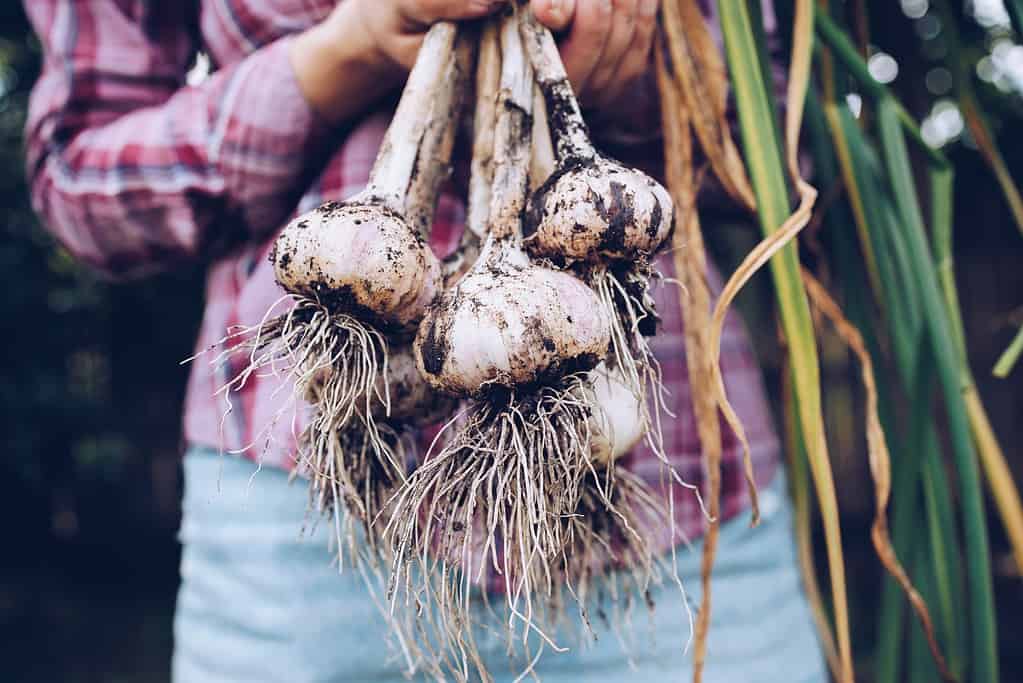
Garlic deters potentially harmful insects and has antifungal properties in gardens that can help zucchini plants.
©nblx/Shutterstock.com
Another plant known for its pest-repelling properties is garlic. The potent sulfur compounds in garlic emit a distinct odor that is a natural deterrent to pests, particularly aphids. These small, sap-sucking insects can wreak havoc on zucchini plants, causing damage and inhibiting growth. Planting garlic near your zucchini creates a protective barrier that helps keep aphids at bay.
Additionally, garlic is known for its antifungal and antibacterial properties, which can help prevent diseases that may affect zucchini. Moreover, garlic is a versatile culinary herb that you can harvest and use to add flavor and nutritional value to your meals. Planting garlic will help to have a thriving and healthy garden. Also, if you are worried about vampires, garlic is a great way to keep them away!
3. Mint (Mentha)
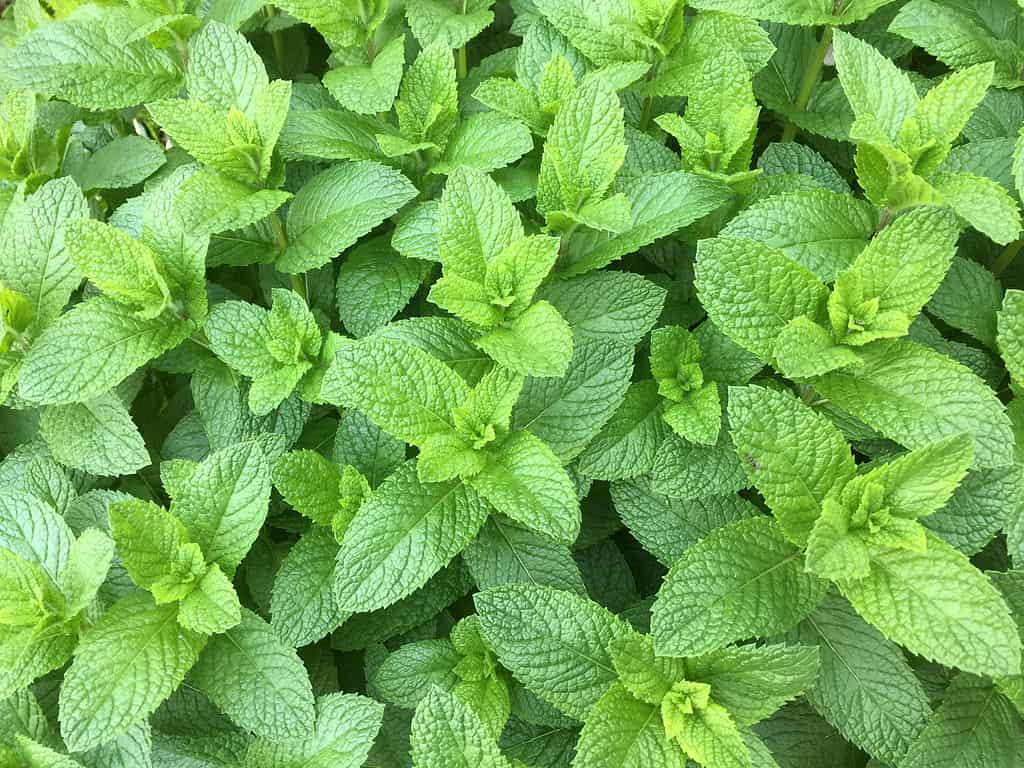
A versatile plant that can be used in cooking and also as an excellent companion plant, mint is an easy herb that every gardener should use.
©lpjp/Shutterstock.com
Mint is another excellent companion plant for zucchini; many say mint can repel grazing animals, including deer. The strong and aromatic fragrance emitted by various mint plants can keep animals from snacking on your precious vegetables. So, by interplanting mint near your zucchini, you create a barrier of scent that helps protect your crops.
Mint’s spreading growth habit also acts as a living ground cover, suppressing weeds and keeping in soil moisture for the benefit of the zucchini plants. Additionally, mint is a versatile herb that can be harvested and used in culinary dishes alongside your zucchini or even for refreshing herbal teas.
With its pest-repellent properties, ground-covering nature, and culinary usefulness, mint is a valuable companion plant for zucchini, promoting a thriving and well-protected garden.
4. Marigolds (Tagetes)
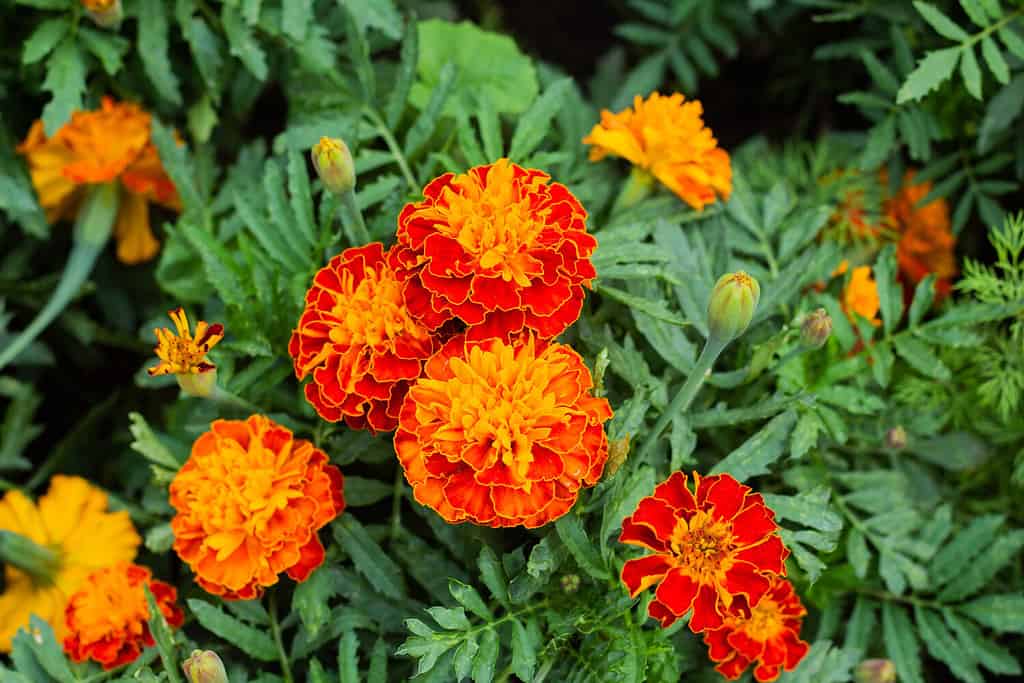
Not only are marigolds beautiful additions to your home, but they also attract insects away from your vegetables.
©FunFamilyRu/Shutterstock.com
While it is true that marigolds can attract certain pests like mosquitoes, whiteflies, aphids, squash bugs, and more, the key lies in planting them slightly away from your zucchini crop. By strategically placing marigolds as a border or barrier around your zucchini plants, you can help divert and concentrate these pests away from your zucchini, acting as sacrificial plants that draw them away from your main crop. A good comparison would be using a sacrifice pawn in chess, you may lose the pawn, but your more important chess pieces remain safe. This way, the marigolds serve as decoys, taking the brunt of pest infestation while protecting your zucchini. Maintaining distance between the marigolds and zucchini is essential to prevent the pests from spreading to your desired plants.
Marigolds also add visual appeal to your garden with their vibrant blooms. They can attract insects such as ladybugs and hoverflies, which can help control aphids and other harmful pests. Marigolds deter nematodes and soil-dwelling problems that can negatively impact plant roots and indirectly benefit the zucchini plants. With careful placement and management, marigolds can serve as a helpful companion plant for zucchini, offering pest diversion and attracting beneficial insects while adding beauty to your garden.
5. Beans (Phaseolus vulgaris)
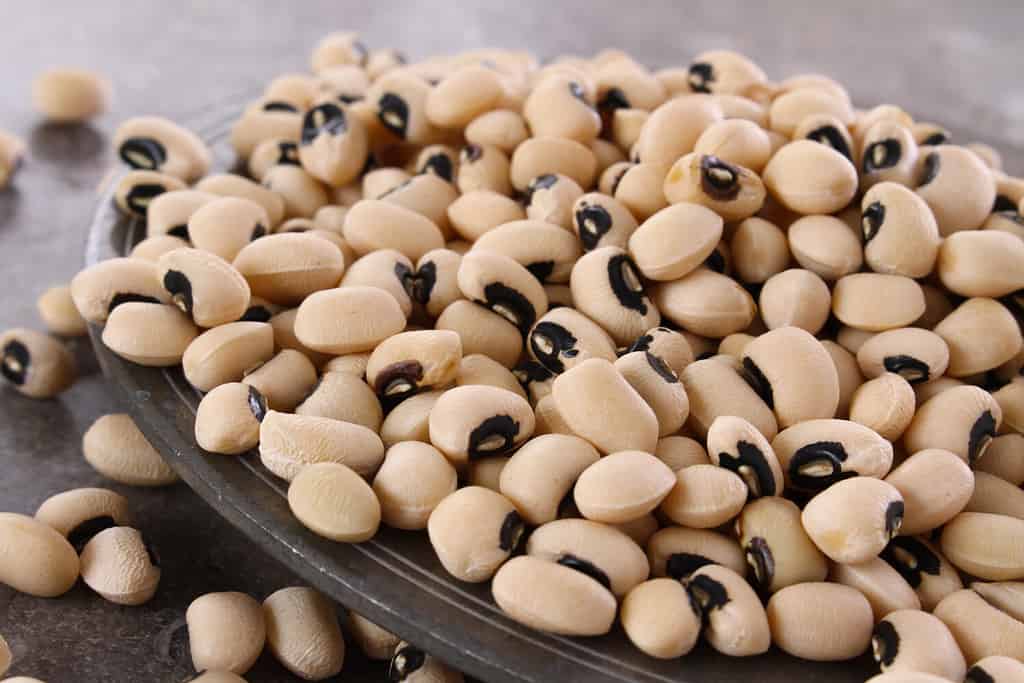
Acting as a natural fertilizer in gardens, beans are a perfect vegetable to plant alongside zucchini.
©Chatham172/Shutterstock.com
Beans are some of the best zucchini companion plants due to their ability to fix nitrogen in the soil, thereby balancing pH levels and improving soil fertility. Nitrogen is an essential nutrient for plant growth, and leguminous plants like beans have a unique symbiotic relationship with nitrogen-fixing bacteria. These bacteria reside in the root nodules of legumes and convert atmospheric nitrogen into a form that plants can utilize. As beans fix nitrogen, they enrich the soil around them, providing a readily available source of this vital nutrient for neighboring zucchini plants.
By interplanting beans with zucchini, you create a mutually beneficial relationship. The beans supply nitrogen to the soil, supporting the nutrient needs of the zucchini plants. In return, the zucchini provides a living trellis for the beans to climb, offering support and vertical growing space. This intercropping technique maximizes space utilization in the garden and promotes healthier growth for both plants.
The dense foliage of bean plants can provide shade and act as a natural weed suppressor, reducing weed competition for zucchini. The vining nature of beans can also create a living mulch, protecting the soil from excessive evaporation and temperature fluctuations. Additionally, beans are a nutritious and versatile crop that can be harvested for food purposes, providing a delicious yield alongside your zucchini harvest.
6. Oregano (Origanum vulgare)
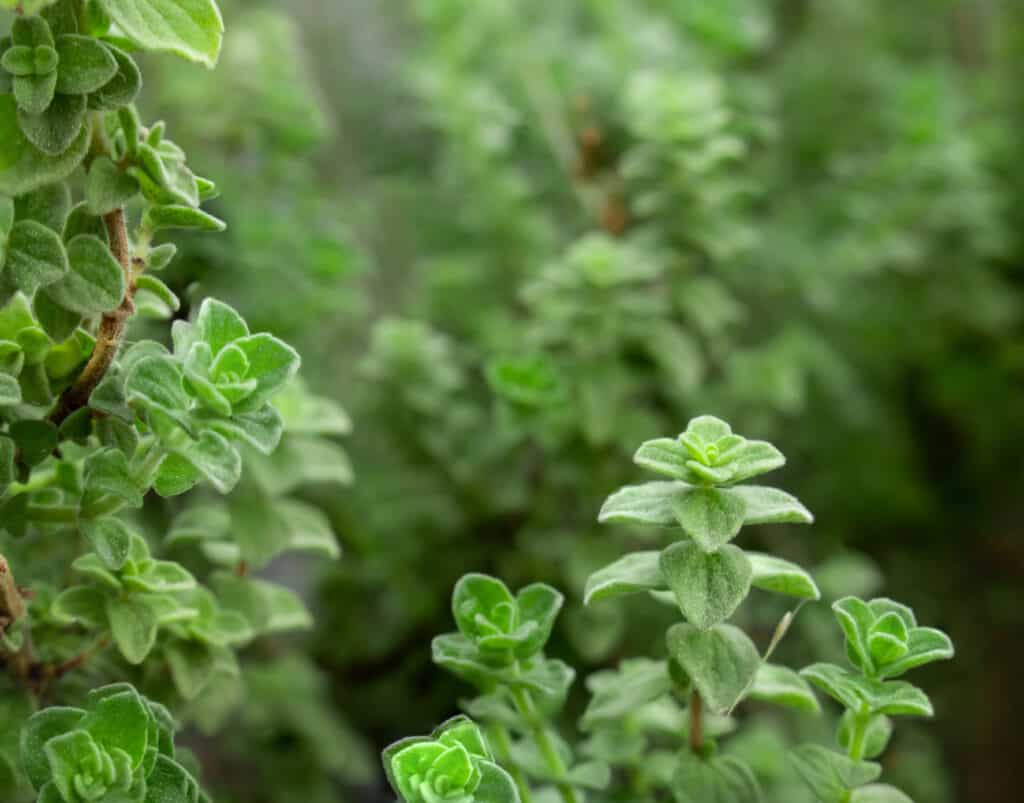
A common aromatic cooking herb that can be used to deter pests in a garden is Oregano.
©Artem Kontratiev/Shutterstock.com
Oregano is another plant that can be beneficial for zucchini because of its aromatic properties and pest-repellent capabilities. Like other aromatic herbs, the strong scent of oregano acts as a natural deterrent for pests such as cabbage moths. These moths lay eggs on the leaves of plants, which can result in caterpillar infestations that damage the foliage. By planting oregano near your zucchini, you create a barrier of fragrance that helps repel these pests, reducing the likelihood of infestations.
Additionally, similar to mint, oregano’s spreading growth habit can also serve as a ground cover, reducing weed growth and conserving soil moisture for the benefit of the zucchini and surrounding plants. This can help create a more favorable environment for healthy zucchini growth.
7. Rosemary (Salvia Rosmarinus)
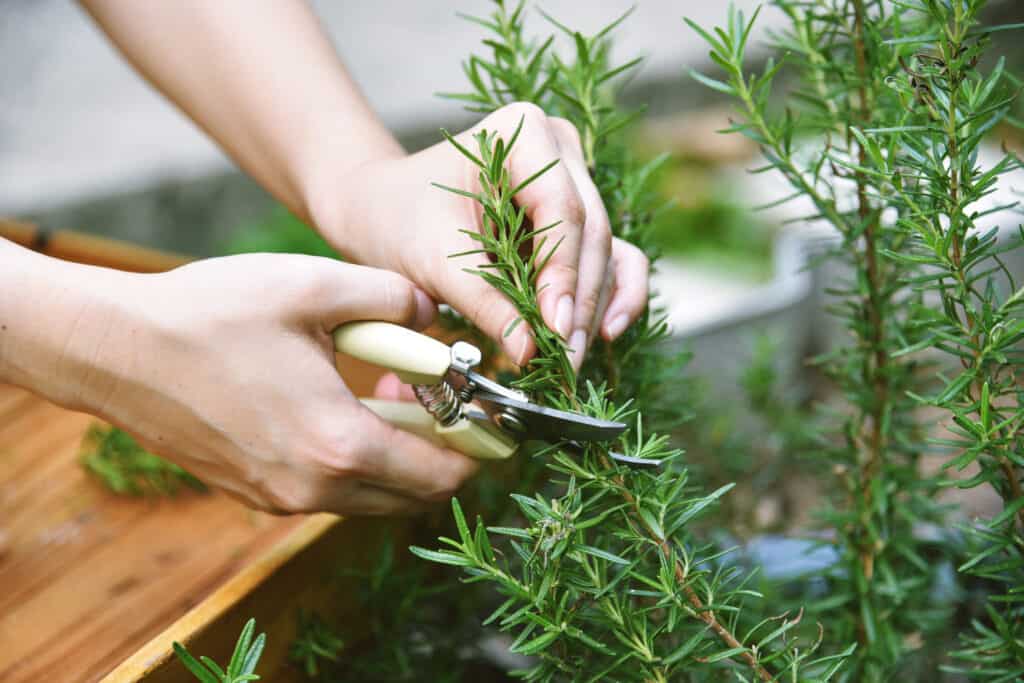
As a natural pest deterant, rosemary is a wonderful addition to your garden.
©iStock.com/Artfully79
Rosemary is another herb with aromatic qualities that can repel pests in your garden, including corn earworms. Earworms, also known as corn earworms or tomato fruit worms, are common pests that can cause damage to the fruiting parts of zucchini plants. The strong fragrance of rosemary acts as a natural deterrent, reducing the risk of infestations. In addition to its pest-repellent properties, rosemary offers other benefits as a companion plant. Its upright growth habit can shade the base of the zucchini plant, helping to keep the soil cool and prevent excessive moisture loss through evaporation. This can be particularly beneficial during the hot summer months.
Rosemary is an evergreen perennial herb with needle-like leaves and delicate blue flowers. Furthermore, rosemary is a versatile herb that can be harvested and used in various culinary dishes, adding flavor and aroma to your meals. Throw in a pinch of rosemary in your soups or with some roasted vegetables; the resulting added flavor will take your taste buds on a spin!
Cultivating rosemary alongside zucchini not only aids in pest control but also contributes to a thriving and diverse garden ecosystem.
8. Nasturtiums (Tropaeolum)
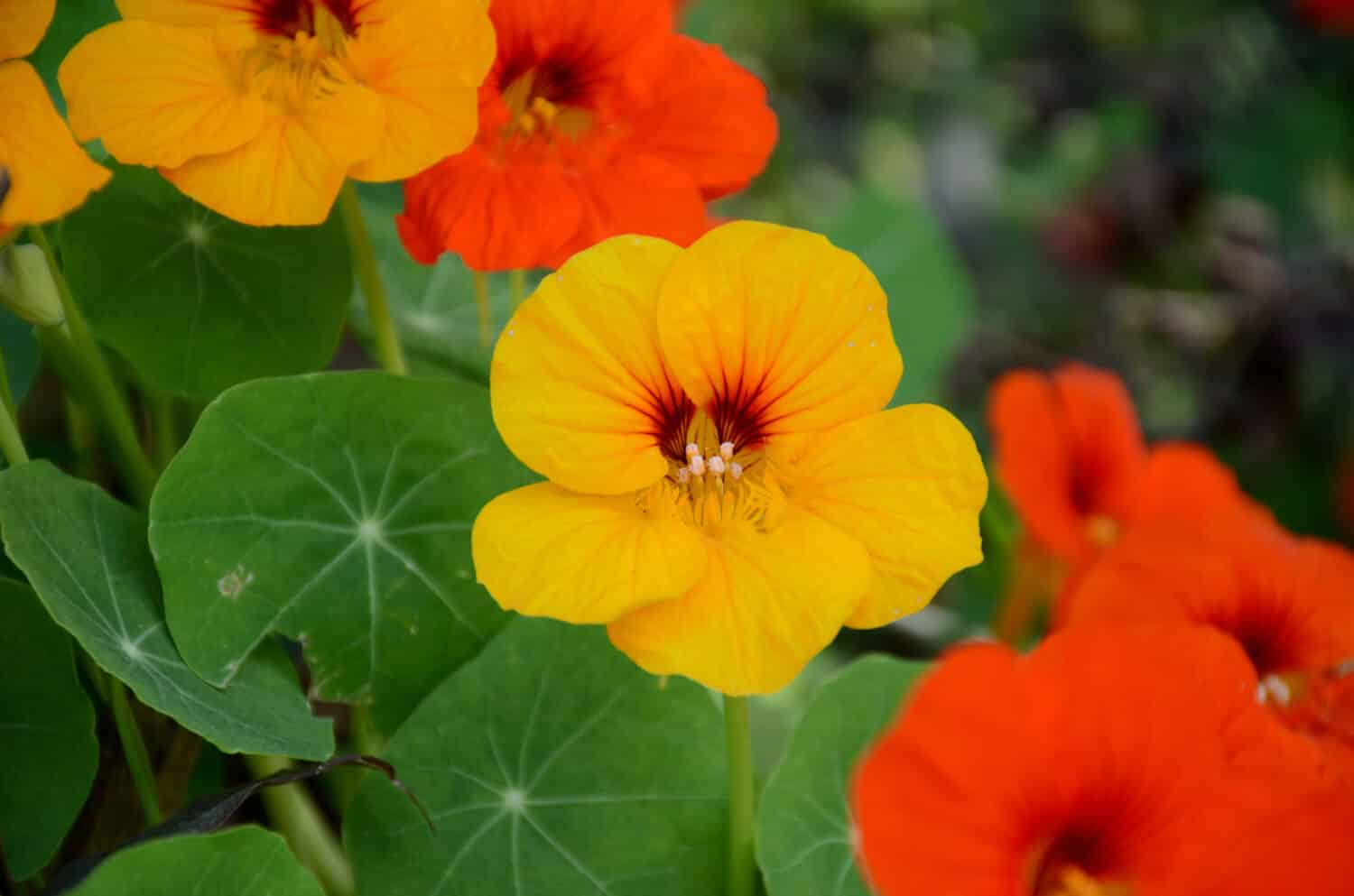
Nasturtiums draw pests towards them, which makes them a perfect sacrifice plant in a garden to protect your vegetables.
©Amit kondal/Shutterstock.com
Despite their attraction to aphids, nasturtiums can be a perfect companion for zucchini. While it may seem counterintuitive, strategically planting nasturtiums a short distance from your vegetable garden can help divert aphids away from your zucchini plants. Nasturtiums possess bright and showy flowers that are particularly attractive to aphids, drawing them away from your zucchini crop. By luring aphids to the nasturtiums, you can minimize the potential damage these pests may inflict on your zucchini. In addition to their pest-diversion properties, nasturtiums offer other benefits as companion plants.
Their vibrant flowers can add a splash of color to your garden, creating an appealing and picturesque environment. Nasturtiums are also edible plants, and their leaves and flowers can be harvested and used in salads or as a garnish, offering a delightful and flavorful addition to your culinary creations. You create a dynamic and multi-functional garden space by incorporating nasturtiums as companion plants for zucchini. Attracting aphids away from your zucchini plants can save your crops. Just be sure to place the plant far away from your zucchini. If the nasturtiums are located too near your zucchini, you may actually attract aphids to your zucchini plant rather than away.
9. Borage (Borago officinalis)
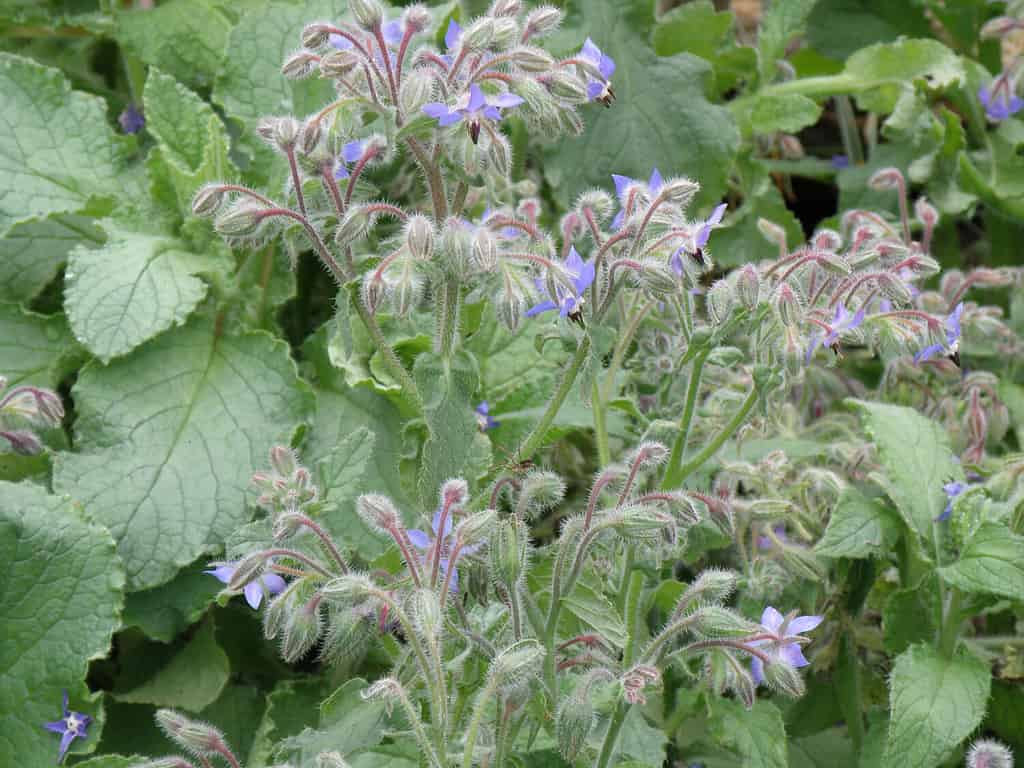
This plant attracts pretadory insects and wards off pesky worms.
©Nature’s Charm/Shutterstock.com
Borage is an excellent companion plant for zucchini due to its dual role in attracting useful insects and deterring pest worms—the vibrant blue flowers of borage act as a magnet for beneficial pollinators, particularly bees. By attracting bees to your garden, borage aids in pollination, contributing to your zucchini plants’ overall health and productivity.
Borage also repels certain pests, including worms that can damage zucchini plants. The distinct scent and compounds present in borage can act as a natural deterrent, keeping these pests away. This helps protect the foliage and fruit of your zucchini, ensuring a higher chance of a bountiful harvest.
The presence of borage in your garden supports a diverse ecosystem by attracting a range of insects that can help your gardens, such as predatory wasps and ladybugs that feed on pests like aphids and caterpillars. These helpful insects act as natural pest control agents, keeping the populations of harmful pests in check. In addition to its pest-repellent and pollinator-attracting properties, borage is an edible plant. Its leaves and flowers can be used in culinary preparations, adding a refreshing cucumber-like flavor to salads, drinks, or garnishes.
10. Peas (Pisum sativum)
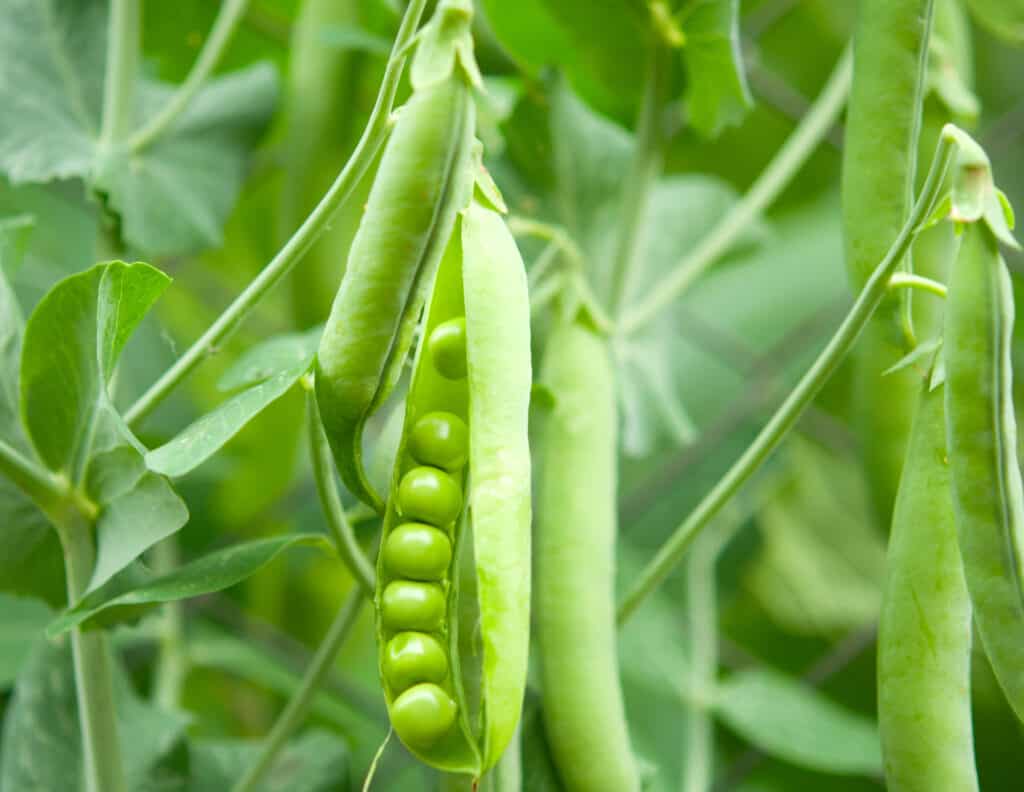
Another perfect companian plant for zucchini is peas, which natural fertilize the soil.
©iStock.com/ksena32
Peas are well-known as being one of the best companion plants for a variety of crops, including zucchini. One of the primary reasons peas are good companions for zucchini is their ability to fix atmospheric nitrogen. Peas belong to a class of plants known as legumes. As mentioned earlier, through a symbiotic relationship with bacteria present in their root nodules, legumes can convert atmospheric nitrogen into a form that plants can use, effectively fertilizing the soil in a natural, sustainable way.
This process of nitrogen fixation greatly benefits zucchini, which are heavy feeders and require rich, fertile soil for optimal growth. The enriched soil boosts the productivity of the zucchini plants, often leading to larger yields and healthier plants overall.
Moreover, the lifecycle and growth habits of peas complement those of zucchinis. Peas are generally cool-season crops, sown in early spring, and reach maturity faster than zucchini, which can be warm-season crops. This means peas can be harvested and cleared out before zucchini plants requires more space to continue their growth. This staggered growth cycle allows for efficient use of garden space and enables a seamless transition without causing competition for resources. Furthermore, peas’ vining habit makes it easy to use a trellis or some other vertical support, thereby saving ground space for the sprawling growth of zucchini.
11. Catnip (Nepeta cataria)
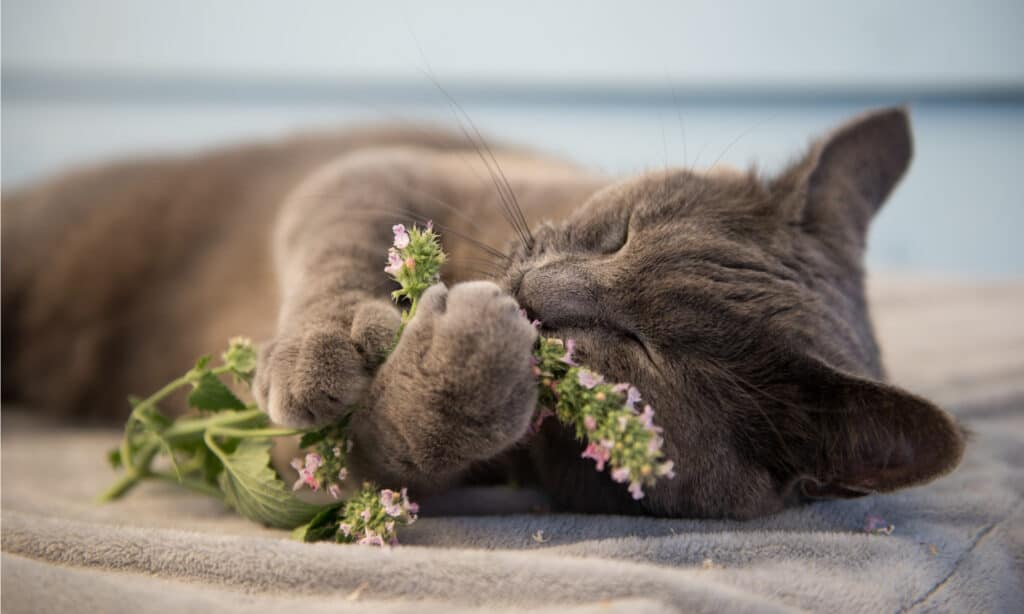
Despite being a psychoactive plant that attracts felines, catnip also deters pests and is a good companian plant for zucchini.
©Anna Hoychuk/Shutterstock.com
Catnip is another powerful addition to any vegetable garden and serves as an excellent companion plant for zucchini. This perennial herb, often recognized for its potent psychoactive effect on cats, has also gained a reputation as an effective pest deterrent. Certain aromatic compounds in catnip can repel many pests that are common threats to zucchini plants.
By planting catnip alongside zucchinis, you can create a natural defense against these pests, reducing the need for chemical pesticides and promoting a healthier organic garden environment. The scent of catnip can also potentially repel rodents, such as mice and rats, further safeguarding your zucchini. However, it’s important to bear in mind that while catnip can deter some pests, it may also attract cats to your garden, which could be a problem if they cause damage. Catnip is a resilient plant that can thrive in various soil conditions, making it a low-maintenance companion for your zucchini plants.
Plants to Avoid Planting Near Zucchini
- Cucumbers: Growing cucumbers in the same area as zucchini is not recommended because both plants compete for space and soil nutrients.
- Sweet Potatoes: Like cucumbers, sweet potatoes can compete for space and nutrients against a zucchini plant.
- Melons: Melons and zucchinis can be affected by the same types of pests. Planting them too close together can increase the chances of pests finding your crops.
- Pumpkins: Pumpkins can take up a lot of space, much like zucchinis. Planting them close together increases the likelihood of them competing for space. This could result in one or both plants not growing to their full potential.
Summary of the Best Zucchini Companion Plants
| Plant | Benefits |
|---|---|
| Dill | Pest repelling, ground cover |
| Garlic | Disease and pest repelling |
| Mint | Possibly repel grazing animals, suppress weed growth, ground cover |
| Marigolds | Sacrificial plant, deters pests away from crops |
| Beans | Balancing soil health |
| Oregano | Pest repelling |
| Rosemary | Pest repelling, shade |
| Nasturtiums | Sacrificial plant |
| Borage | Attracts beneficial insects and pollinators |
| Peas | Soil health |
| Catnip | Pest repelling |
The photo featured at the top of this post is © Amit kondal/Shutterstock.com
Thank you for reading! Have some feedback for us? Contact the AZ Animals editorial team.




